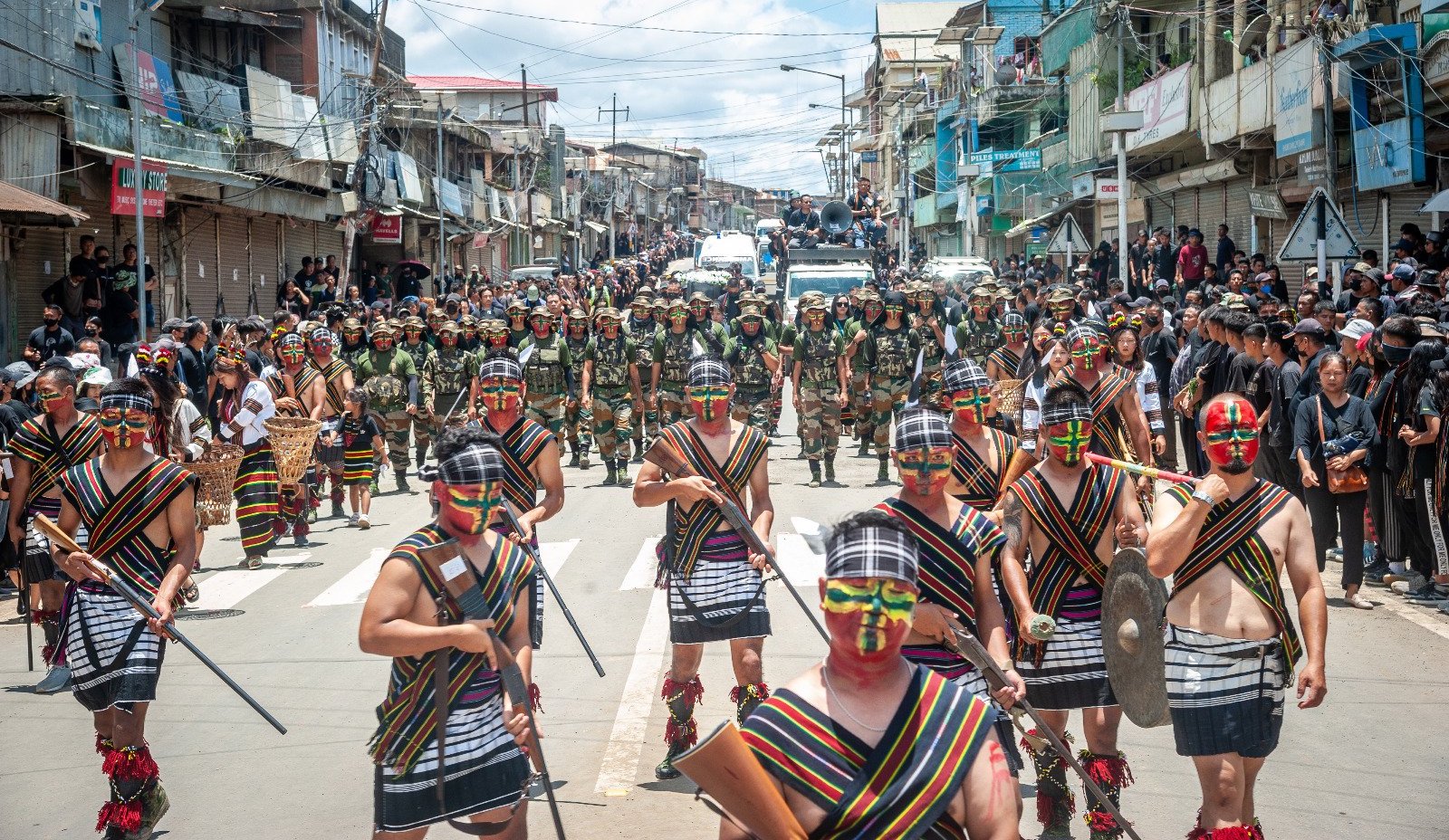
The Indigenous Tribal Leaders Forum in India’s northeast state of Manipur announced June 26 that it has rejected “any offer of dialogue” with the state’s Chief Minister N. Biren Singh. In a statement, the ITLF said the chief minister’s stated intention of reaching out to stakeholders following a meeting with India’s Home Minister Amit Shah “comes too late after the loss of so many innocent lives and properties and the untold hardships faced by the Kuki-Zo tribals; there is no point in talking about peace without a political solution.” Singh, of India’s ruling Hindu-nationalist BJP, is accused of inaction or outright collaboration in attacks during weeks of violence between the Hindu Meitei community and the mostly Christian and animist Kuki and Naga indigenous peoples. (The Wire)
The Indian federal government called upon Singh to restore peace in Manipur, precipitating the meeting with Amit Shah. But Human Rights Watch (HRW) on May 30 accused the BJP of “playing divisive politics” by giving the Meitei community favorable treatment over the Kuki and other tribal peoples. HRW South Asia director Meenakshi Ganguly said, “The violence in Manipur state since early May has left communities devastated, and it’s crucial for the government to restore order in a rights-respecting manner and hold to account those responsible for abuses.”
While the violence has abated in recent weeks, there have been 105 deaths and over 320 injuries reported since May 3. Additionally, over 50,650 men, women and children have been displaced as a result of the conflict. (Jurist)
Indian opposition leader Rahul Gandhi was stopped by local police June 29 on his way to visit Manipur’s Churachandpur district, one of the most affected areas in ongoing violence. Gandhi’s convoy was halted at Bishnupur, around 20 kilometers outside state capital Imphal. Police cited security concerns for the halt, and resorted to tear-gas shells to disperse the large crowd that amassed. (Jurist)





India: sexual assault video brings Manipur conflict to national stage
Breaking more than two months of silence, Indian Prime Minister Narendra Modi has addressed ongoing unrest in the northeastern state of Manipur after video appearing to show the public sexual abuse of two Kuki-Zo tribal women spread on social media. In a July 20 statement, Modi condemned the apparent assault as “shameful.” The video appears to show two women being paraded naked on the streets.
The Supreme Court of India took suo moto cognizance of the event on July 21. Suo motorefers to the right of the Supreme Court to accept cases on their own, without them moving through the traditional legal processes, as is granted by the Indian Constitution. (Jurist, TNH)
Four men have just this week been arrested in connection with the attack, which took place amid the initial outbreak of violence in May. (DW)
Modi government faces no-confidence motion
The Indian parliament accepted a no-confidence motion against Prime Minister Narendra Modi’s Bharatiya Janata Party (BJP) government July 26. The motion was initiated by Congress Deputy Leader Gaurav Gogoi and supported by the opposition alliance INDIA.
The motion was initiated due to disruptions in the Parliament and the BJP’s reluctance to address opposition demands for a statement on the ethnic violence in Manipur. Its potential impact on the Modi government is likely to be minimal, given the BJP resounding majority of 332 members in the 542-seat lower house of the Parliament. (Jurist)
India: high court orders oversight for probe of Manipur violence
The Supreme Court of India has appointed former Maharashtra Director General of Police (DGP) Dattatray Padsalgikar to supervise the Central Bureau of Investigation’s (CBI) probe into the ongoing violence in Manipur. In an order made public on Aug. 10, the Supreme Court condemned delays in the CBI probe and ordered Padsalgikar to investigate allegations that Manipur police “colluded with the perpetrators” of sexual violence. The court took up the case on July 17 after a video surfaced online depicting the sexual assault of two Kuki-Zo tribal women in Manipur. (Jurist)
India orders repolling in Manipur amid violence
The Election Commission of India (ECI) ordered repolling at 11 polling stations within the Inner Manipur parliamentary constituency on April 20 in response to incidents of violence during the Lok Sabha elections in Manipur. This decision follows disruptions that marred the initial voting process on Friday. The Lok Sabha elections are national elections to elect members of the lower house of the Indian Parliament. (Jurist)